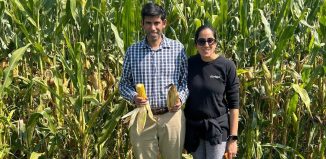SBU’s Matuk oversees research with human subjects
Stony Brook doesn’t just use bacteria, viruses, and DNA in its research. The university also seeks human volunteers, for studies in areas ranging from cancer and HIV to sociology.
Currently, the university has about 1,000 active projects that involve volunteers, including a study on obese individuals who are insulin-resistant and are prone to developing type 2 diabetes.
The human subjects are people, not data, and “without them, we don’t have advances in medicine at this campus,” said Judy Matuk, the assistant vice president for research compliance at Stony Brook. “There’s a big respect issue on this campus.”
Indeed, for 26 years, Matuk has been in charge of human subject compliance, assuring that the process of including people in studies meets various standards and includes informed participants. “We want to have the community know research goes on,” she said. Her office also wants to make sure “folks are aware of their rights.”
Matuk said humans don’t waive any right as test subjects. She also emphasized that the consent process requires scientists to spell out exactly what’s involved in each experiment.
“At the end of a discussion” about the research, “if the potential subject says, ‘What do you think I should do?’ then that process failed. The process should have all the information they need to make a decision on their own.”
When she speaks to researchers who are planning to use humans in their studies, she emphasizes that each person is “somebody’s somebody” whether that’s an aunt, a mother, a sister, or a brother. She wants to make sure people aren’t data points, the way temperature and humidity readings might be for someone studying the weather.
Stony Brook is well aware of research horror stories. One of the most famous was the Tuskegee syphilis experiment, in which the U.S. Public Health Service studied syphilis in African-American men between 1932 and 1972. During the study, people who had syphilis did not receive treatment that had become available during that time.
After that study, the National Research Act passed, Matuk said, which established the National Commission for the Protection of Human Subjects of Biomedical and Behavioral Research. This group, which met in the Belmont Conference Center of the Smithsonian Institute, created a code, called the Belmont Report, that outlined a set of ethical principles that guides research involving human subjects.
The research review process in place at Stony Brook meets and exceeds federal requirements by using best practices. Colleagues at Stony Brook consider Matuk “tough but fair,” said Harold Carlson, a professor of medicine and chairman of one of the two institutional review boards at Stony Brook.
Carlson, who has known Matuk for 26 years, described her as an “extremely effective” leader, as an educator of the faculty and an enforcer of the rules and regulations with human subjects in research.
Researchers, who receive approval for a maximum of one year, are required to notify a review board if something unanticipated happens. With all the safeguards in place, Matuk said she is proud of the contributions Stony Brook has made to research fields. That includes work with drug trials on the human immunodeficiency virus.
At the same time, Matuk wants anyone participating in these studies, especially of drugs that might help treat a chronic condition or illness, to understand that “this is not clinical care. This is research. We don’t know the answer” about whether the treatment will prove more effective than the current standard of care.
Members of the Long Island community can help out with research, even if they don’t have a chronic condition.
A resident of Miller Place, Matuk lives with her husband, Jay Matuk, the principal of Cold Spring Harbor Junior/Senior High School. The couple have three children: Katie, 27, Zachary, 22 and Paige, 18.
Aside from family, Matuk said she is an active member of her temple, Beth Emeth in Mount Sinai, where she was president for five and a half years.
“When you talk about people volunteering, you always think the next guy will do it,” she said. ‘That’s a dangerous attitude to have. You want to know you can make a difference.”






